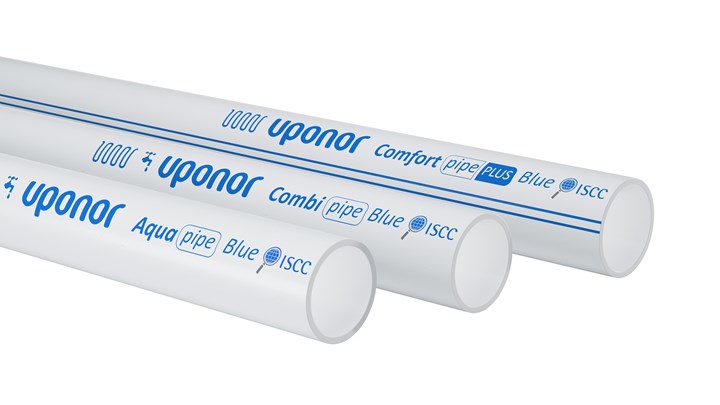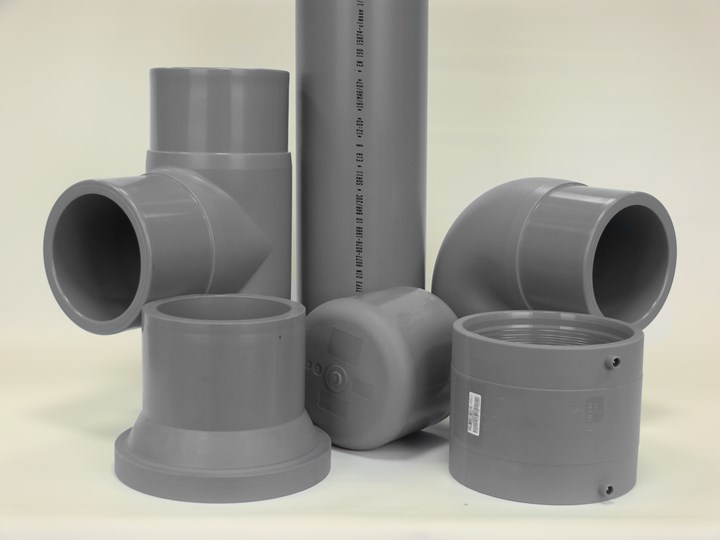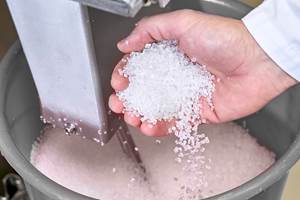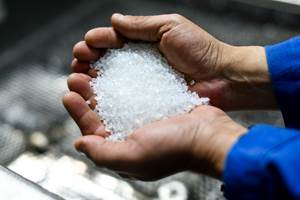Borealis and Partners Move Forward with Crosslinked PE and PP Pipes Based on Renewable Feedstock
The company’s partnerships in these new drop-in solutions significantly advances carbon footprint reduction.

The sustainability ‘movement’ in the plastics industry continues to advance and materials and additives suppliers are among the leaders, largely through innovative industry partnerships, in this overall endeavor—ranging from mechanical and chemical recycling advancements to biobased feedstocks and materials. And, while single-use plastics has been the chief focus, this movement has been growing way beyond.
One example is advancing renewable feedstock in the polyolefins pipe markets and the Borealis Group is among one of the strongest participants in this arena with its industry partnerships. Says John Webster, Borealis’ global commercial director for infrastructure, “The use of certified renewable polymers is considered an instrumental lever to accelerate the transition from a linear to a circular plastics economy. It mitigates fossil depletion, helps all pipes & fittings value chain players reach their sustainability targets faster and supports the industry’s aims to become carbon-neutral. Together with our pipe industry partners, we are committed to reinventing the plastics system for more sustainable living.”
Take a look at these drop-in replacements for crosslinked PE and PP pipes made from Borealis’ Bornewables portfolio of polyolefins based on second-generation natural resources, such as waste from pulp production or residues from food processing oils. Based on a mass balance accounting process under the International Sustainability & Carbon Certification Plus (ISCC Plus) scheme, the accreditation of these materials allows Borealis and its partners to prove and quantify the effective renewable content at each manufacturing step from the Bornewables material to the final pipe. Both efforts are aligned with Borealis’ EverMinds activities and initiatives to advance the circularity of plastics through partnerships across the value chain.
▪ Crosslinked PE for HVAC
Borealis’ Bornewables PEX was used by pipe specialist Upanor, Apple Valley, Minn., to create the PEX Pipe Blue, which is said to be the world’s first pipe portfolio made from PEX with renewable feedstock, accredited by the ISCC Plus scheme.
The new PEX Pipe Blue products boast an unprecedented carbon footprint reduction of up to 90% when compared to conventional fossil-based PEX pipes. This also marks a major step forward to help customers in the building and construction industry achieve their sustainability targets in plumbing, heating, ventilation and air-conditioning (HVAC) installations.

▪ PP Pipes for Residential Plumbing, Heating & HVAC
Borealis partnered with Italy’s NUPI (Houston-based NUPI North America) for high-performance pipes based on the Bornewables ISCC Plus-Certified renewable feedstock. Nupi Industrie Italiane (NUPI) is the first pipe supplier in Italy to use Bornewables in high-performance random copolymer PP pipes for plumbing and heating systems. The company has selected the Bornewables PP for the next generation of their Niron Beta PP-RCT (Polypropylene Random Crystalline Structure Temperature) piping solutions for domestic plumbing, heating as well as heating, ventilation, and air conditioning (HVAC) systems designed to perform under higher stress conditions and temperatures.
Bornewables PP reportedly offers the same material performance as virgin PP. The partnership positions NUPI as a front-runner in the market, getting ready for the time when legislation will require the use of renewable materials in pipe production, and makes the company the first pipe supplier in Italy relying on mass balanced Bornewables PP accredited under the ISCC Plus scheme.
Going renewable with advanced material technology PP-RCT, as defined by ASTM F2389 and EN ISO 15874, refers to a chemistry of ‘Polypropylene Random Copolymers with modified Crystallinity and Temperature’ resistance. As a drop-in replacement of fossil-based virgin PP, it eliminates the need for NUPI and end-users to seek renewed approval from water regulation authorities.
Said NUPI Group’s QC director Roberta Brusi, “By adopting the Bornewables PP from Borealis for our new PP-RCT pipes, we are taking a major step forward in our efforts to reduce the carbon footprint of our products and stay ahead of more stringent regulations by which the use of renewable feedstock may soon become mandatory for plastic pipes. The ISCC Plus certification of the material also helps us document the renewable content in our PP-RCT formulation and pipes in a clearly traceable way.”
Related Content
Prices of PE, PP, PS, PVC Drop
Generally, a bottoming-out appears to be the projected pricing trajectory.
Read MorePrices Up for All Volume Resins
First quarter was ending up with upward pricing, primarily due to higher feedstock costs and not supply/demand fundamentals.
Read MoreCommodity Resin Prices Flat to Lower
Major price correction looms for PP, and lower prices are projected for PE, PS, PVC and PET.
Read MorePrices for All Volume Resins Head Down at End of 2023
Flat-to-downward trajectory for at least this month.
Read MoreRead Next
See Recyclers Close the Loop on Trade Show Production Scrap at NPE2024
A collaboration between show organizer PLASTICS, recycler CPR and size reduction experts WEIMA and Conair recovered and recycled all production scrap at NPE2024.
Read MoreBeyond Prototypes: 8 Ways the Plastics Industry Is Using 3D Printing
Plastics processors are finding applications for 3D printing around the plant and across the supply chain. Here are 8 examples to look for at NPE2024.
Read More
























